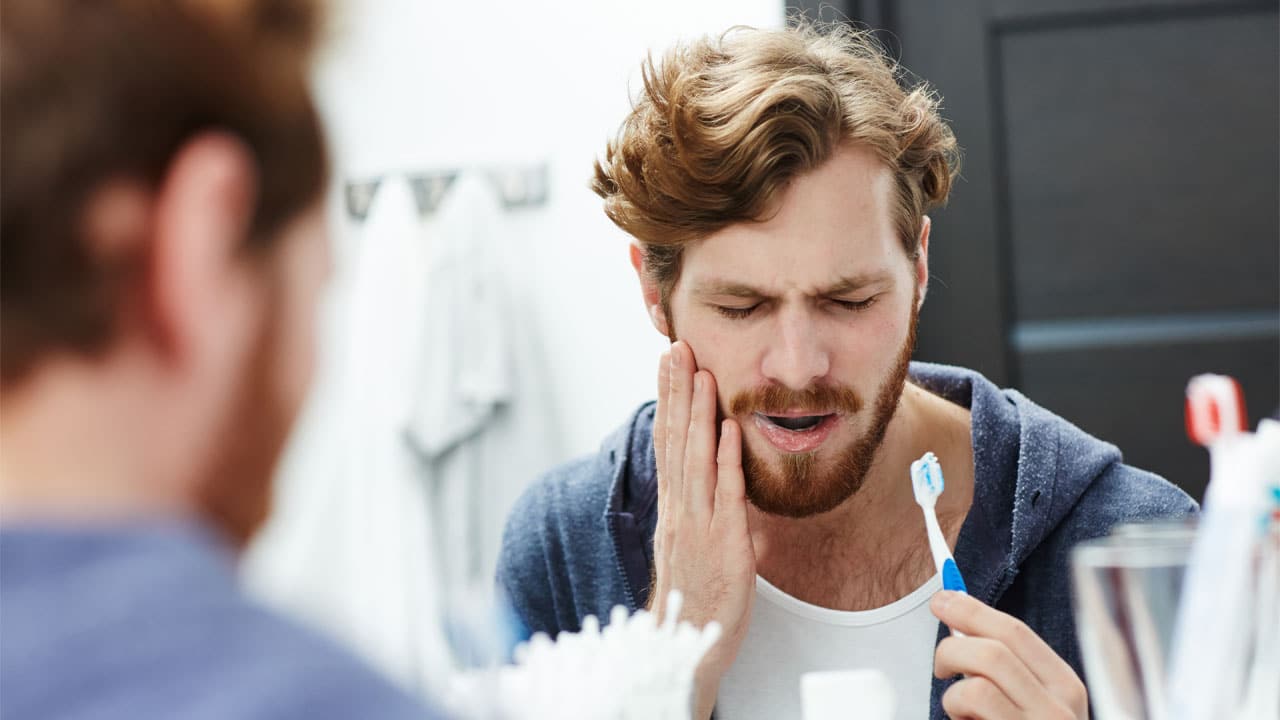
If you have ever woken to a headache, sore jaw, or earache, you may be experiencing some of the symptoms of teeth grinding. Bruxism, also known as teeth grinding, is a common condition characterized by the chronic grinding or clenching of the teeth, often during sleep.
If you suspect you may be grinding your teeth, seek help from a dentist. They can determine the cause of your symptoms and provide you with treatment options to alleviate the discomfort and damage caused by teeth grinding.
Common Symptoms
Teeth grinding can cause various symptoms, some of which may be obvious, while others may be more subtle. Some of the most common include:
- Headaches and facial pain: Teeth grinding can cause tension and pain in the facial muscles, leading to headaches and pain in the temples, jaw, and neck.
- Sensitivity and pain in the teeth: The constant grinding and clenching can wear down the teeth, making them sensitive to hot or cold temperatures and causing pain when biting or chewing.
- Earache: The grinding and clenching can cause referred pain in the ears.
- Jaw pain and stiffness: Constant grinding and clenching can cause pain and stiffness in the jaw, making it difficult to open or close your mouth.
- Damage to teeth and dental restorations: Teeth grinding can cause chips, cracks, and wear on your teeth, leading to tooth loss if left untreated. Gnashing your teeth can also damage fillings, crowns, bridges, and dental implants.
- Sores on your cheeks or tongue: Biting your cheeks or tongue while clenching or grinding your teeth can cause painful sores that may inhibit your oral hygiene routine or your enjoyment of nutritious foods like citrus fruits.
- Gum recession: The repetitive motion of teeth grinding places pressure on your gums, resulting in gum recession and can create pockets where bacteria collect.
- Insomnia and difficulty sleeping: Teeth grinding is often worse at night, and the noise may keep you or your partner awake, causing insomnia and difficulty sleeping.
Some people may have bruxism and not experience any symptoms. Regular dental check-ups are essential for detecting and monitoring signs of teeth grinding, such as flattened teeth or receding gums.
Diagnosis and Treatment
Your dentist can examine your teeth and jaw for signs of wear or damage and take X-rays to check for any underlying issues, such as damage to your teeth’s supporting structures. In some cases, such as sleep bruxism, a dentist may also refer you to a sleep specialist for further evaluation.
Once a diagnosis has been made, various treatment options are available for teeth grinding, which include:
- Lifestyle changes: Reducing stress and avoiding specific triggers, such as alcohol and caffeine, can help alleviate symptoms.
- Oral appliances: Your dentist can fit you with a custom-made mouthguard or splint to wear at night to protect your teeth from further damage and prevent grinding.
- Therapy: A therapist can help you identify and address the underlying psychological causes of teeth grinding, such as stress or anxiety.
- Medications: In some cases, your dentist may prescribe medication to help relax the jaw muscles and alleviate discomfort.
Contact Smile On Dental Salon & Sleep Apnea Center
If you suspect you are experiencing teeth-grinding symptoms, contact Smile On Dental Salon & Sleep Apnea Center. Our team can provide the diagnosis and treatment you need to protect your oral health and improve your quality of life.
Contact us today at Deerfield: (224) 282-8939 or Lakeview: (773) 525-5545 to schedule an appointment.
